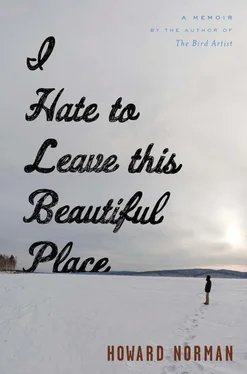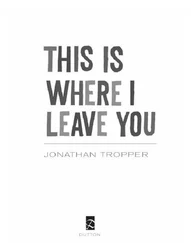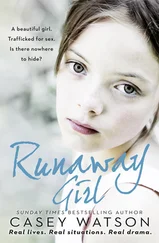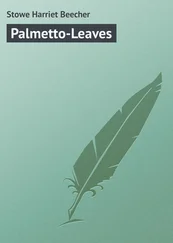I startled awake in my bed at the Olema Inn, sweating, with a terrible headache, the knowledge of what those fortune cookies contained having crossed over into consciousness. The alarm clock on the bedside table read 3:50 A.M.; I could hear the voice of an owl, but that lovely sound did not prevent me from feeling disoriented, near to the point of weeping. My thoughts were frazzled, and I said to myself, “Look, you can’t help where your mind goes in sleep.”
The telephone on the table rang: it was the front desk, the night clerk reporting that my next-door neighbors in room 2 had lodged a complaint about “loud talk — even screaming.” I apologized but did not say that I had had a nightmare. I thought the best thing would be to drive to McClures Beach to see what Halley Shagran might be up to. Extend the night that was so rudely interrupted, take in the air, the moonlight.
Halfway into my drive to Pierce Point Historic Ranch, I experienced a reprise of the all too familiar, cramped tightening of gloom in my stomach, a minor attack of nausea, the sense of a threaded pulse, so I immediately pulled into a turnoff along the road. I got out and leaning against the car, taking as many deep breaths as I could. What was this? What was happening? The moon was so beautiful over the ocean. There was a strong wind off the sea, a shushing whisper of it in the conifers close by to my right, and far off in the distance to my left, the constellation of lights and the vague outline of a behemoth freighter slowly moving north.
Despite my headache and nausea, I got back in the car and drove slowly, and when I got to Pierce Point and parked in the lot, I took a high-intensity flashlight, got out of the car, and followed the long, wide beam down the path to McClures Beach. Moonlight flooded the beach, but there was no sign of Halley, and I hadn’t seen her car anywhere in the vicinity of Pierce Point, either. I walked down the beach toward the cliffs. Sprawling, tentacled bulbs of Medusa kelp lay here and there — you can easily slip on them. I walked past the dolphin carcass, which, on quick inspection by flashlight, had been considerably picked apart, but there was still enough left for the carrion gulls at first light.
I continued on to the stretch of beach between the cliffs and the archipelago of small rock islands where I’d seen the oystercatcher. Feeling on my skin the cold balm of fog, I ventured out onto a peninsula of coral-jagged rock and stood there, hoping the sea breeze would move straight through my head, ear to ear, taking those horrid fortunes with it. And that is when I heard the oystercatcher.
Was it the same one? I thought it must be, since oystercatchers are solitary and territorial birds. While at first I couldn’t locate the oystercatcher in the gauzy, spectral light, I kept hearing its plaintive kee-ap kee-ap wee-o. And after ten minutes or so I saw the bird itself, and seeing it, I recognized the ventriloqual talent of the beach at night — the oystercatcher sounded as if it were farther north than it actually was. I moved twenty yards up from the peninsula and huddled in a rain slicker and blanket on dry sand beneath the cliffs, where I stayed the rest of the night, the oystercatcher appearing and disappearing until the mist burned off and the daytime world, with its ocean light, was revealed. Pelicans flew in formation low to the water, and seals bobbed offshore in the background — with the dead dolphin in the foreground, in repose, as yet free of scavenging gulls.
Roughly an hour after dawn broke, the oystercatcher flew off but was back within the hour. Where had it gone? The bird began to work its rock island again. I watched its frantic industriousness, its fluttering up a foot or two and back down to the rocks, its preening, and then Halley showed up with her camera and notebook.
Postcards, telephone calls, and the poems of Robert Frost kept me connected to Vermont, but by and large I felt like a resident, for those ten days, of Point Reyes National Seashore. I had taken to wearing a T-shirt with my favorite painting on it, Milton Avery’s California Landscape/Seascape, depicting a house and several outbuildings above a steep-cliffed horseshoe-shaped inlet, surrounded by fields of tawny brown and yellow dry grasses. And during the next eight days — and all through two nights — I accompanied Halley Shagran on her photographic traipses along beaches and trails, through wetland and woodland, all of which were, after my many visits to this preserve, as familiar as the palm of my hand. Yet as she narrated her own past experiences, railed against local anti-conservationists, imparted all sorts of zoological and botanical information, I came to see these old places in a new light. “Let’s face it,” she said, “I make photographic autopsies and never run out of subject matter.” I even became affectionately accustomed to her offbeat humor.
Simply put, I felt that by being so artistically absorbed in death’s spell, Halley had come to cast her own spell on death. I watched her photograph gulls, pelicans, weasels, seals, sea lions, foxes, kestrels, mule deer, axis deer, butterflies, beetles, and cattle, each animal discovered in its final posture, in a stage of decomposition, with its fixed stare, agonized or oddly peaceful expression, its corporeal disarray. All of which would eventually be depicted in black and white, like negatives of creation itself, in the photographs Halley developed late into most nights in the darkroom at Point Reyes Station.
I estimated that, apart from my time with Halley, I watched my oystercatcher for roughly fifty hours on that visit. The oystercatcher’s existence offered me a hypnotic passage of time, a vicarious connection to the sea, and focus, distraction, sorrow, laughter, tears, all helping to move me through and escape the grasp of servitude to the fixed notion that only pain and sorrow are real truths, and that joy exists only to be subject to doubt. That is, at least in some provisional way, after all those hours in the realm of the oystercatcher, I was feeling joy as opposed to a simulacrum of joy, a condition that just might warrant use of the word healing. On my last afternoon at McClures Beach, I thought, When the spirit of this wonderful oystercatcher transitions, I hope it becomes an oystercatcher.
As I write this, in a house in Inverness, California, in the early-morning hours, with deer nibbling apples fallen from a craggy tree, a flock of pelicans in view high over Tomales Bay, a stack of letters on the dining room table, a manual typewriter there, too, after having had a breakfast of orange juice, cranberry scones, and coffee, I’m reading the posthumously published collection of poems, Radha Says, written by Reetika Vazirani. I notice that many of the poems have, as part of their narrative strategy, a broken-line form, caesuras imposing what Igor Stravinsky called “the exigencies of an interval.” In part what he meant was that silence between musical notes contains as much complexity, as much earned and rendered feeling, as the notes themselves. You could argue that the same idea applies to a Morse code message delivering alarming news.
Now, I am far from being a poet. But I subscribe to what W. H. Auden thought, that truly original poetry is the purest air language can breathe, and to sully that air by overdramatizing the abject soul makes fraudulent claims on the reader’s heart. And I subscribe to what Zadie Smith wrote: “No geographic or racial qualification guarantees a writer her subject. . Only interest, knowledge, and love will do that.” And I am recalling what Alfred de Vigny wrote: “A calm despair. . is the essence of wisdom.”
With these devoted beliefs and assertions, like vigilant sentinels posted near at hand — as if these writers were standing just yards away on the wooden veranda of this house — I struggle and reread, struggle and reread. Finally I detect faint suggestions of joy in many of the persona poems, with their voices of the Urdu poet Ghalib and the Radha of Hindu epic — but also find much theosophical confusion and misanthropy. I suppose that I experience this whole collection as a libretto for the staging of a solipsistic and garish mytho-opera, with each poem an evocation of real suffering. But more concretely, while reading I keep picturing a woman in India — perhaps a poet, perhaps not. She stands in a house, on a woven rug, an heirloom trod upon by children and adults — possibly representing the sheer fabric of daily life — that is worn threadbare, definitely unraveling.
Читать дальше












